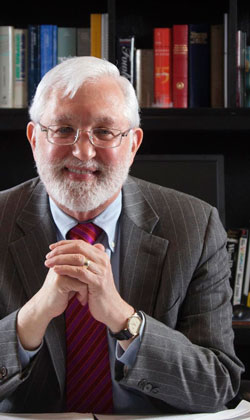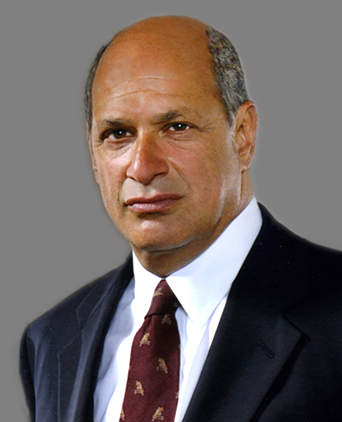Do judges contribute to injustices? A conversation with Judge Jed Rakoff

Photo of U.S. District Judge Jed Rakoff by Stringer/Reuters/Corbis.
U.S. District Judge Jed S. Rakoff of the Southern District of New York spoke with author Joel Cohen as a forerunner to the publication of Cohen's book Broken Scales: Reflections on Injustice, just released, in which Cohen interviewed 10 people about injustices in our justice system. The following are excerpts from that interview.
Joel Cohen: When we look at injustices in the criminal justice system … we look to the judiciary to right those wrongs. But commentators don’t typically look at the judiciary itself as being responsible for injustices. Do you see judges themselves as sometimes responsible for injustices?
Jed S. Rakoff: First, globally, I’m not sure I agree that the job of a judge is to correct every injustice he or she sees. We have an adversary system, and the judge’s main job is to apply the law and find the facts (or, if the jury finds the facts, to apply the facts to the law.) I think, however, that judges do have a particular role to play in the broad allocation of powers of our Constitution in protecting the rights of individuals and minorities .…
Having said that, getting down to the nitty-gritty of what you were asking about, I think too many courts have been too quick to leave unchallenged—and even unthought about—certain kinds of evidence that historically have been produced in criminal cases and that should have been subjected to greater scrutiny. For example, a great deal of forensic science has now come under scrutiny from the scientific community. In 2009, the National Academy of Sciences published a report that was highly critical of most forensic science other than DNA. And this included things well-regarded by many people—fingerprinting, hair analysis, bite-mark analysis, arson analysis and so forth. But before and even after that report, very few judges critically analyzed the forensic science that was being presented to them.
Most lawyers have very little scientific background. A judge, it seems to me, should educate himself, and if he thinks the science is doubtful, make some inquiry.
JC: Justice Felix Frankfurter once wrote, “There comes a point where [judges] should not be ignorant as judges of what we know as men [and women].” So when judges do decide to be “ignorant,” using his word, aren’t they contributing to the injustice?
JSR: I think they are. Not wittingly. I think no judge sets out to do an injustice …. The judge should be bringing an objective point of view to the situation.
JC: Why don’t they?
JSR: I think for a variety of reasons. First—and of course there are many exceptions, but many judges, and in particular state judges, are also overburdened and so their idea is to get the case off their docket—finish it. Second, I think that many judges see too many cases that are alike, and therefore they assume that the next case is just like the other 55 they’ve seen. So they are not as open to seeing that this case might be different. The Innocence Project exonerations are filled with examples of that—where judges were totally blind to suggestions that this particular defendant might be not guilty, or might not be as guilty as others in cases that the judge had seen before. A third factor, to be frank, is that a great many judges are former prosecutors and very few are former defense counsel ….

Joel Cohen.
JC: Implicit in what you’re saying is that judges who are former prosecutors are more inclined to accept what current prosecutors before them are doing.
JSR: I think there are obviously exceptions, but as a rule, that’s a fair statement. I think that’s because they did it in a certain way when they were prosecutors, and they’re not inclined to see that developments since they left the office may now raise questions.
I’ll give you an example. Judge Louis Pollak wrote a decision about 15 years ago, before the National Academy of Sciences report came out. It was a case of fingerprinting and, sua sponte, he applied the Daubert standards, and he found that fingerprint analysis would not pass a Daubert test. He was attacked not only by prosecutors, but by fellow judges. I remember discussing it with a judge in my court, someone whom I respect but who was also a longtime prosecutor, and he was outraged. He said, “Have you read about this judge down at the Eastern District of Pennsylvania who said that fingerprinting is not good? How could that be? We’ve been doing that for a hundred years. This is ridiculous.” I think that was symptomatic of an attitude that many judges have when the ways that they did things as prosecutors somehow come into question. …
JC: You are willing, particularly in your extracurricular writings, to speak out about “injustice.” In my view, judges are in a better position than literally anyone else to speak out on these issues given their experience on the bench, yet many are unwilling to do it.
JSR: I agree. I think what is often overlooked, is that the judicial canons of ethics authorize judges to speak out publicly on matters of importance to the administration of justice and the development of the law. … I think that many judges have the view that it detracts from the public image of the judiciary: unlike political figures, we should be remote; we should be super-cautious. And there’s something to that. There’s a certain amount of reticence that is appropriate. And a second reason is, to be frank, judges who do speak out are spoken of behind their backs by their colleagues as publicity hounds. …
JC: So if you were to speak out the way you have particularly in recent years and you were being nominated now to, say, the court of appeals, do you think that nomination would be in serious jeopardy?
JSR: Possibly. Until members of Congress read my articles and then they would be totally convinced [laughter].
JC: Given the fact that you are sort on the outer edge of what judges are willing to do given the constraints …
JSR: You really know how to hurt a guy.
JC: It’s a fair statement, though, right? If you were to create the rules and protocols that apply to judges, what restraints would you lift so that you would be free to do things that you feel you can’t do now when you see something that you perceive to be an injustice?
JSR: I don’t think there are any restraints that I would lift. The restraints that I agree with totally are the ones embodied in the Federal Canon of Ethics. …. I think the power is there for judges to do everything I think a good judge should do. I would hope that judges would be less reticent in exercising those powers.
JC: What about a willingness to do something “rogue” if you can’t otherwise right the wrong?
JSR: The answer to that is no. Every judge should have a certain recognition, having seen the adversary system play out, that what you may be certain about could be dead wrong. … Judges need to exercise a certain self-discipline, a certain caution, before they speak out. But having said that, there are situations that call for speaking out, but not for lawlessness. The hardest question, which I don’t think I’ve ever had to face, would be where I felt the law required me to do something that was totally immoral and unjust—that just could not be defended on any basic moral plane. And I think at that point, resignation is the right answer, not doing something rogue.
JC: One last question—I know it’s late and you have to get back on the bench. Would you want the federal judiciary to have—let me call it—a (maybe) statutory “wild card”? Meaning, in that rare case when you see an injustice and you simply can’t repair it in some other way, you have that wild card available to you as a sua sponte motion to dismiss?
JSR: I think that’s a great idea. Now there would be abuses, obviously. But I think on the whole, I don’t want anything I said before not to reflect the fact that the great majority of my colleagues are people of good will and high intentions, and I think they would exercise those wild cards only in situations where it really was called for…. I think judges would use a wild card sparingly, and there would have to be a high standard. But I think it would allow them to do just what I said judges are specially obligated to do—to be sensitive to the particular rights and issues involving individuals, even when that individual is disreputable or unpopular.



